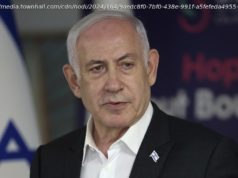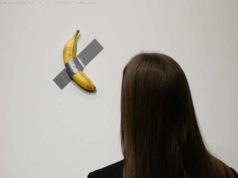Trump released the letter, saying it had been sent to Sen. Lindsey Graham, R-S. C., who said he hadn’ t sought the Russia information.
President Donald Trump collected at least $100 million from Russian people or organizations between 2008 and this March, according to a personal letter from his tax counsels that he released Friday in response to a senator’s unofficial query.
The amount could be higher. The letter notes that money from sales of condominiums or other products would “not have been separately identified as ‘Russian’ in your books.” The letter goes on to state that regarding such income, “the amounts are immaterial.”
Also Friday, Deputy Attorney General Rod Rosenstein’s office confirmed that he “will come to brief the full Senate next week, ” according to Matt House, a spokesman for Sen. Chuck Schumer, D-N.Y., who made the request this week. “The time and date are still being worked out.”
Trump released the letter, saying it had been sent to Sen. Lindsey Graham, R-S. C., who had asked former Director of National Intelligence James Clapper in a recent Senate hearing if he had ever seen “a situation where a Trump business interest in Russia caused him concern.” Clapper’s answer appeared to be less than a wholesale no – he said he’ d seen nothing to concern him in the investigation of Russian meddling in the 2016 election, but that he couldn’ t answer beyond that because it could interfere with an investigation.
That answer left Graham raising the matter in interviews after the hearing. But, his staff confirmed, he had not yet made an official request for an explanation from Trump.
The letter that Trump released was signed by Sheri Dillon and William Nelson and was dated March 8,2017. In it, the authors explain that they have served as tax counsel for Trump and The Trump Organization since 2005. It offers no explanation for why they were writing Trump. At the time, Trump’s possible business ties to Russia had been the subject of numerous news stories.
The letter states: “With a few exceptions . your tax returns do not reflect . any income of any type from Russian sources.”
It then goes on to define those exceptions. The first was “in 2013, the Miss Universe pageant was held in Moscow and of the $12.2 million of foreign income that it earned that year, a substantial portion of it was attributable to the Moscow event.”
The second exception stated that “in 2008, Trump Properties LLC sold an estate in Florida, that it had acquired in 2005 for approximately $41 million, to a Russian billionaire for $95 million.”
And the third explained “over the years, it is likely that TTO or third-party entities engaged in ordinary course sales of goods or services to Russians or Russian entities, such as sales, rental, fees for condominiums, hotel rooms, grounds of golf, books or Trump-licensed products (e.g. ties, mattresses, wine, etc.) that could have produced income attributable to Russian sources (such income would not have been separately identified as ‘Russian’ in your books and records and therefore not separately reflected on your tax returns) . With respect to this last exception, the amounts are immaterial.”
The third exception appears to leave the question of Russia-related income unanswered. In 2008, Trump’s son Donald Trump Jr. claimed at a real estate conference that “Russians make up a pretty disproportionate cross-section of a lot of our assets, ” when talking about who was buying property, such as condominiums. “We see a lot of money pouring in from Russia.”
The letter also is at odds with a recent Boston public radio station report in which golf writer James Dodson talked about a conversation he allegedly had with another Trump son, Eric. Eric Trump has denied that the conversation took place.
Dodson said in 2014 he and Eric Trump were talking about how President Trump had secured a $100 million investment in golf courses, when Eric Trump told him “We don’ t rely on American banks. We have all the funding we need out of Russia.”
Later, he said, Trump added, “Oh, yeah. We’ ve got some guys that really, really love golf, and they’ re really invested in our programs. We just go there all the time.”
The letter states that Trump holds interest in or owns more than 500 “separate entities .” The letter also notes that because of the structure of his organization, his personal income tax returns would reflect the income of these “separate entities.”
Outside of the exceptions, the letter states “your tax returns do not reflect . any income of any type from Russian sources . any debt owed by you or TTO to Russian lenders or any interest paid by you to or TTO by Russian lenders . any equity investments by Russian persons or entities in entities controlled by you or TTO or . any equity of debt investments by you or TTO in Russian entities.”






